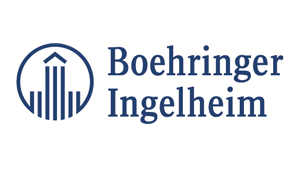The year 2020 made it particularly clear to Boehringer Ingelheim how important location-independent working is. The key to remote working is the digital workplace, which enabled the company to master both short- and long-term challenges. But how do you get your workforce to adopt and use the new technologies and enhancements? Campana & Schott’s comprehensive adoption and change management ensures sustainable acceptance and the development of digital skills of more than 52,000 employees.

Starting situation: Support of diversity and inclusion
The strength and competitive advantage of the globally operating enterprise result in particular from the fact that the group promotes diversity and inclusion in all aspects of business—from diversity in terms of their employees’ backgrounds to diversity in terms of thoughts and ideas, as well as partners and suppliers.
The goal is to enable a smooth communication and collaboration process, both within the entire Boehringer Ingelheim workforce, and with partners. To this end, the company implemented the digital workplace, consisting of Microsoft Office 365 in combination with other technologies.
The digital workplace is designed to enable employees to collaborate with their colleagues, partners and other stakeholders without limits. It drives productivity by allowing employees to focus on their most impactful activities and efficiently share results—anytime, anywhere, on any device, with anyone.
Boehringer Ingelheim is well aware of the three key factors for reaping the success made possible by the digital workplace: Acceptance by the workforce, digital literacy, and technical skills. Boehringer Ingelheim relies on Campana & Schott's longstanding experience as a Microsoft partner for implementing and rooting the digital workplace among their workforce.
Solution: A comprehensive adoption and change management
Campana & Schott supported the introduction of the digital workplace at Boehringer Ingelheim by setting up an adoption and change management strategy. In addition, the partner designed introductory measures to increase adoption and implemented them together with Boehringer Ingelheim.
Among the various measures included in the strategy was the implementation of targeted, ongoing learning and communication campaigns. To better understand the needs and challenges of their employees in their daily work, “personas” were developed through interviews and workshops, and use cases for the digital workplace were created. The qualification of employees is based on the use cases and carried out via state-of-the-art online formats such as full-day digital boot camps and digital 60-minute training sessions.
Another contributor to a successful implementation is the creation of digital workplace communities, in particular the “Champions” community, which was created and continuously supported by the project team. The volunteer community members are activated and trained via “Champions Calls” and measures such as sharing one-pagers or receiving the "Tip of the Week". This has led to a sustainable multiplier concept and helps the project team spread information about the digital workplace within Boehringer Ingelheim and increase acceptance of the new ways of working and technologies by the workforce.
In addition, Launch Teams support the acceptance of the digital workplace in the respective regions. They locate communication and training campaigns and relay feedback to the project team.
The adoption rate of the digital workplace and the success of the training campaigns are presented using key performance indicators from various data sources. The Microsoft 365 Usage Analytics Dashboard and qualitative data from surveys, for example, serve as basis, and are then presented centrally in an Adoption Measurement Dashboard in PowerBI. To have specific Knowledge documents, processes and templates available for future Boehringer Ingelheim projects in the context of adoption and change management, reusable artifacts were compiled in a “user adoption framework”.
As a result, Boehringer Ingelheim benefits from flexible and efficient work processes that further enhance the company's strong innovative power. In addition, Boehringer Ingelheim's attractiveness as an employer is increased through the availability of state-of-the-art digital workplace functionalities. Thanks to a comprehensive adoption and change management approach, employees know how to use the latest technologies to add value to their work day. This is also reflected in the increasing usage rates of the digital workplace worldwide.
Since its establishment in 1885, Boehringer Ingelheim has been an independent, family-owned company. As a world-leading, research-driven company with approximately 52,000 employees, Boehringer-Ingelheim daily creates value through innovation in three business areas: Human Pharma, Animal Health, and Biopharmaceutical Contract Manufacturing. In 2020, Boehringer Ingelheim achieved net sales of 19.5 billion euros. Significant investments of almost 3.7 billion euros in 2020 in R&D are driving innovation, enabling the development of the next generation of medicines.
